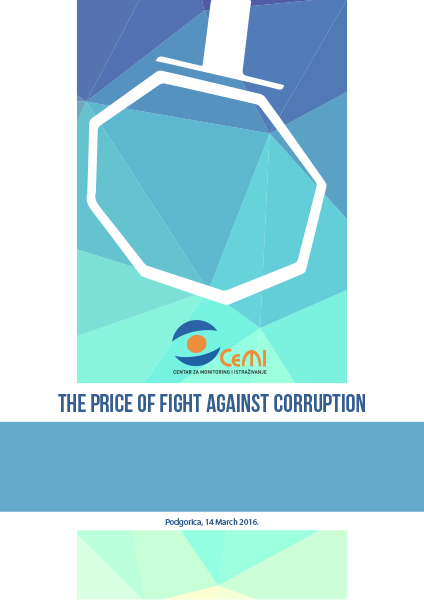The most common definition of corruption is created by the Transparency International and reads that it represents “abuse of entrusted power for private gain”. Others define it as „symptoms and outcomes of institutional weakness, with potentially negative effects to state economic performances.” Many studies showed that corruption discourages investments, limits economic growth and changes structure of the budget expenses, most often damaging economic growth. Limiting economic growth, increasing social inequality and creating negative forms of behaviour and distorted system of values – are only few basic out of many corruption consequences, mentioned by many studies. Baring this in mind, when we fight against corruption, one of the main goals is to decrease negative consequences of corruption, i.e. to prevent negative economic growth, illicit enrichment, possible direct damage to enterprises and state budget, decrease social inequalities and influence raising awareness about the noxiousness of corruption and decrease readiness of citizens to use it.
The Price of Fight against Corruption
06. Jan. 2017. in publications
